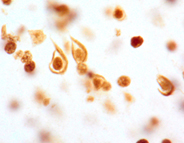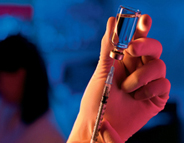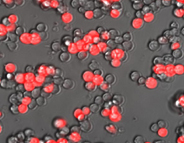 |
 |
|||||||
| September 26, 2013 | Research Extras Read about the new NIH-funded Center for Neurocognitive Studies in the School of Nursing, leading research in chronic illnesses associated with cognitive decline, depression, and anxiety. Learn how Winship Cancer Institute researchers are measuring the amounts of radiation received through different breast imaging techniques through a Komen Grant. The Friends of the National Library of Medicine recognized Raymond Schinazi and Sanjay Gupta with prestigious awards. Winship Cancer Institute Executive Director Walter Curran, is the newest Georgia Research Alliance Eminent Scholar. See how a Fogarty Center grant is funding the Ethiopia-Emory TB Research Training Program in a country where the disease is considered a public health emergency. The inaugural Infectious Disease Institute at Rollins School of Public Health introduced 26 U.S. high school students to ID research.
|
|||||||
Newly Found Brain Tangles are Breakthrough in Alzheimer's Understanding |
||||||||
Clinical Trial Begins for Latest Flu Threat: H7N9 |
||||||||
 |
||||||||
HERCULES: Exposome Research Center will Track Lifetime Exposures and Health Effects |
||||||||
Molecular Beacons Light Path to Cardiac Repair |
||||||||
Lung Cancer Genetic Profile Helps Provide Individualized Treatment |
||||||||
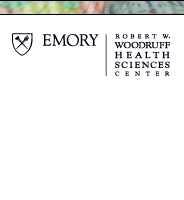 |
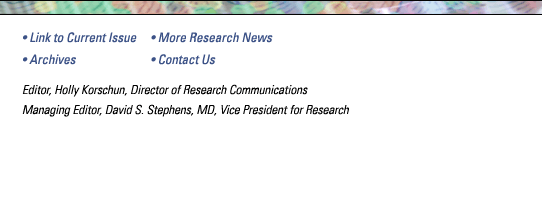 |
|||||||
